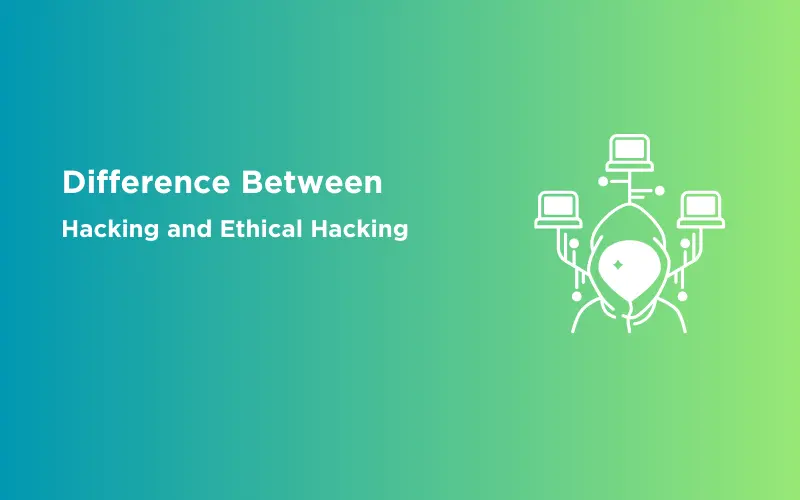
Difference Between Hacking and Ethical Hacking
Sep 05, 2024 7 Min Read 3959 Views
(Last Updated)
In our high-tech world, you’ve probably heard the word “hacking” thrown around a lot. It can sound like a bad thing like someone breaking into computer stuff and causing trouble. But guess what? There’s also a good side to hacking, called “ethical hacking.” These two are not the same at all! In this blog, we’re going to explain the big difference between hacking and ethical hacking in a way that’s easy to understand.
Think of hacking as a sneaky way some people use computers to do bad stuff, like stealing secrets or messing with websites. It’s like being a digital spy but without permission. And yeah, it’s usually illegal. Now, on the flip side, there’s ethical hacking. This is like being a good guy in the digital world. Ethical hackers are the heroes who use their skills to protect computer systems from harmful hackers. They get permission to test for weaknesses in systems and make them stronger. It’s all legal and for a good cause.
By the end of this blog, you’ll know why hacking isn’t always a bad word and why ethical hacking is like a shield that keeps our digital world safe. So, let’s jump in and explore this exciting cyber world!
Table of contents
- What is Hacking?
- Motivations Behind Hacking
- Legal Consequences of Hacking
- What is Ethical Hacking?
- Importance of Ethical Hacking
- Differences Between Hacking and Ethical Hacking
- A. Intent: Malicious vs. Lawful
- B. Authorization: Unauthorized vs. Authorized
- C. Legality: Illicit vs. Legal
- D. Motivation: Personal Gain vs. Security Improvement
- E. Consequences: Criminal Charges vs. Protecting Organizations
- Grey Areas in Ethical Hacking
- Consent and Legal Frameworks
- Balancing Security and Privacy
- Case Studies in Ethical Hacking
- Real-world Examples of Hacking Incidents
- Instances Where Ethical Hacking Saved the Day
- Responsible Cybersecurity Practices with Ethical Hacking
- Conclusion
- FAQs
- What is the main difference between hacking and ethical hacking?
- Are hackers and ethical hackers the same thing?
- Why is ethical hacking important?
What is Hacking?

Hacking refers to the act of gaining unauthorized access to computer systems, networks, or data with the intent of exploring, exploiting, or manipulating them. Hacking can involve various techniques and methods, and it may or may not have malicious intent.
Motivations Behind Hacking
Hackers are motivated by various reasons, and their motivations can range from financial gain to personal vendettas:
- Financial gain
- Personal vendettas
- Espionage
Legal Consequences of Hacking
Hacking, especially unauthorized and malicious hacking, is illegal in most jurisdictions and can result in severe legal consequences, which may include:
- Criminal charges
- Imprisonment
- Fines
- Civil lawsuits
- Damage to reputation
It’s important to note that hacking can also have ethical and professional consequences, as many organizations have strict policies against hacking or engaging in unauthorized activities related to computer systems and networks.
As we proceed further, make sure you’ve got your fundamentals right on ethical hacking concepts! To smoothen your journey, consider enrolling in GUVI’s Self-Paced Ethical Hacking Certification Course to help yourself get started with key concepts such as HTTP Requests, Intercepting HTTP Requests, Exploiting Advanced File Upload Vulnerabilities, and much more! Engage in interesting projects and add value to your experience.
What is Ethical Hacking?
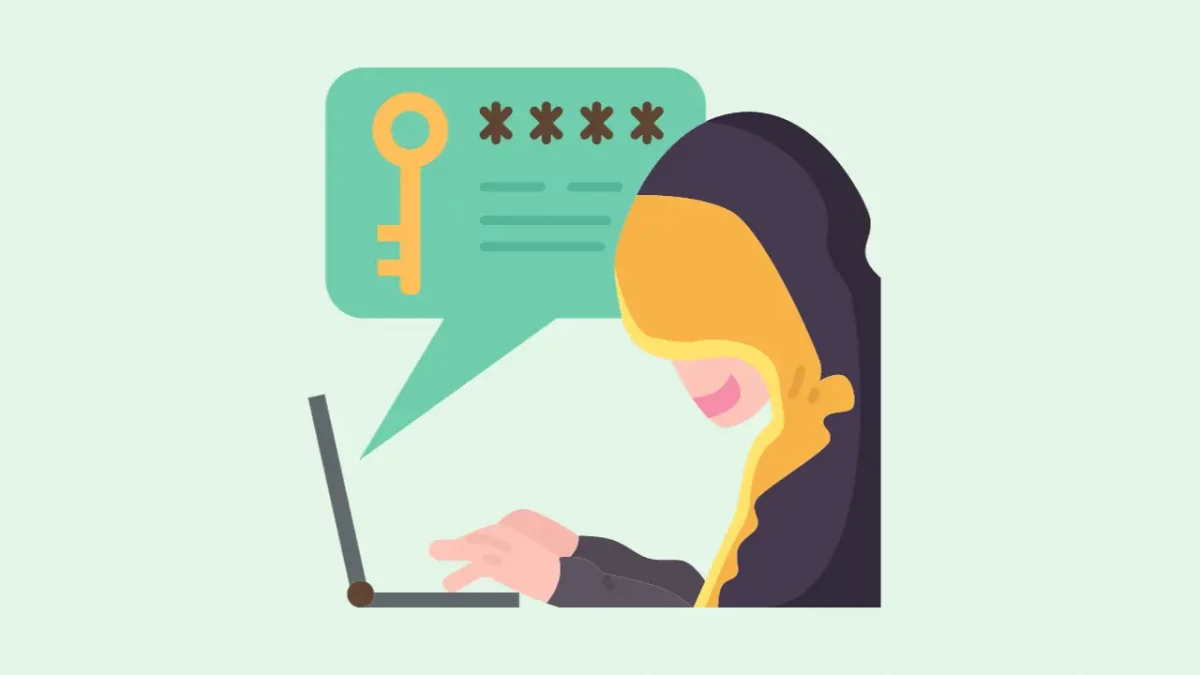
Ethical hacking, also known as white hat hacking or penetration testing, refers to the practice of authorized individuals or professionals deliberately probing computer systems, networks, and applications for vulnerabilities. Ethical hackers conduct these activities with legal intent and the explicit purpose of identifying and addressing security weaknesses to enhance an organization’s cybersecurity.
Importance of Ethical Hacking
Ethical hacking plays a vital role in modern cybersecurity for several reasons:
- Enhancing cybersecurity
- Protecting sensitive data
- Compliance with regulations
Ethical hacking involves authorized individuals using legal intent to identify and address vulnerabilities in computer systems, networks, and applications. Ethical hackers play a crucial role in enhancing cybersecurity, protecting sensitive data, and ensuring compliance with regulations, ultimately helping organizations safeguard their digital assets and maintain the trust of their stakeholders.
Differences Between Hacking and Ethical Hacking
In today’s interconnected digital landscape, cybersecurity has become a paramount concern for individuals and organizations alike. Let’s explore the critical differences between hacking and ethical hacking.
A. Intent: Malicious vs. Lawful
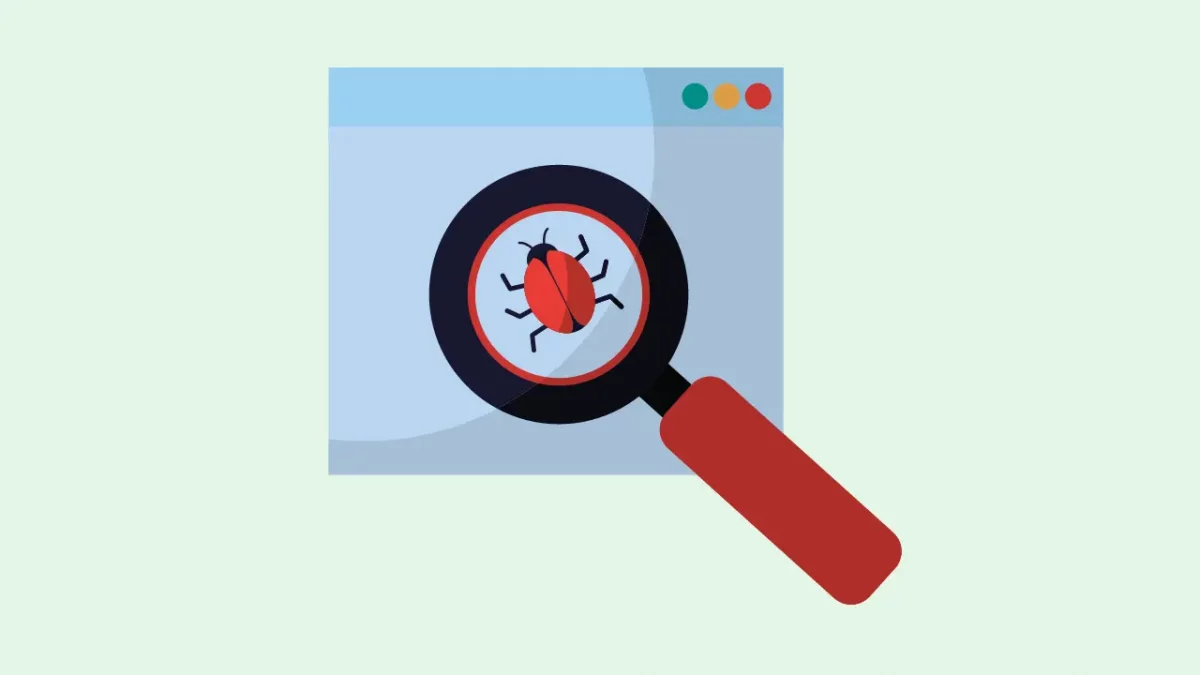
Hacking: Malicious hacking involves unauthorized and harmful activities, with the intent to gain personal benefit or cause harm to individuals or organizations. These activities typically involve breaking into computer systems, stealing sensitive data, or disseminating destructive malware for malicious purposes.
Ethical Hacking: Ethical hacking is conducted with lawful intent, aiming to identify and rectify security vulnerabilities, with no malicious purpose. Ethical hackers, often cybersecurity experts, proactively examine computer systems, networks, or software to bolster their security. Their aim is to enhance digital defenses and protect against potential threats, emphasizing the ethical and responsible use of their expertise for the benefit of individuals and organizations.
B. Authorization: Unauthorized vs. Authorized
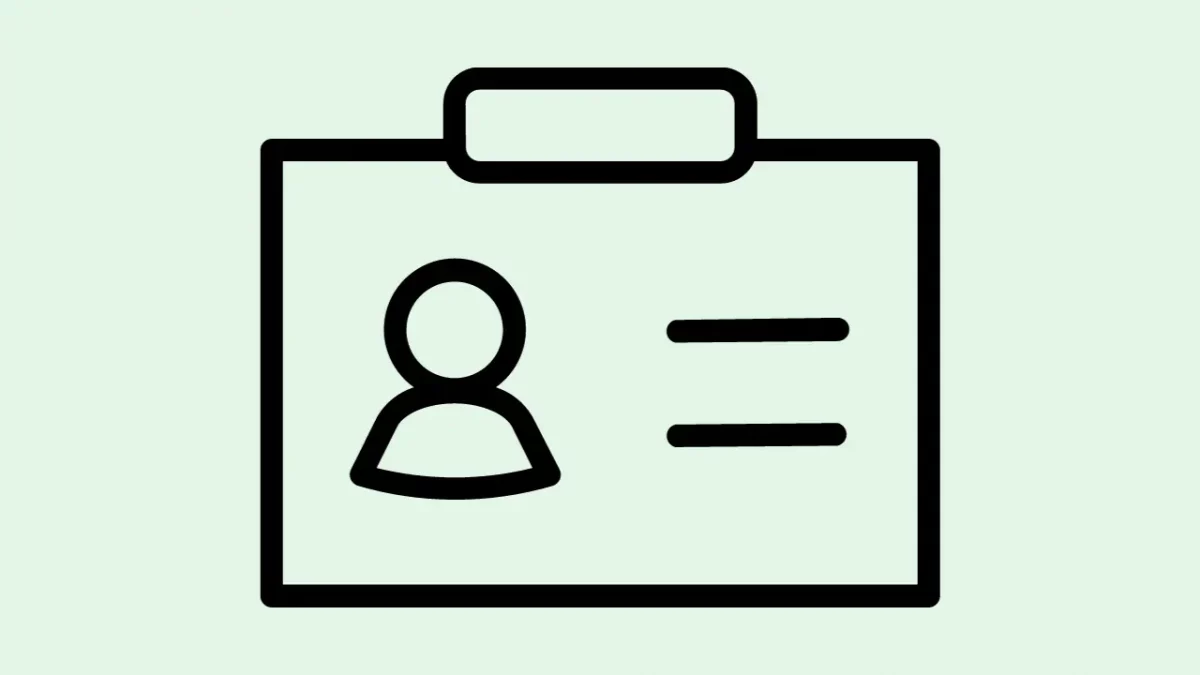
Hacking: Hacking is unauthorized access to computer systems, networks, or data, often without the knowledge or consent of the owner. It involves exploiting vulnerabilities in security measures to infiltrate and potentially manipulate digital assets. Hacking activities vary in scope and intent, ranging from malicious actions that seek to steal information or cause harm to ethical hacking efforts that aim to identify and mitigate vulnerabilities for cybersecurity purposes.
Ethical Hacking: Ethical hackers operate with explicit authorization from the owner or organization to assess and test the security of systems, networks, or applications. Their purpose is to assess and test the security of computer systems, networks, or applications, seeking vulnerabilities that could be exploited by malicious actors. Unlike malicious hackers, ethical hackers follow strict ethical guidelines and legal boundaries while performing their assessments, ensuring that their actions are sanctioned and their findings are used to strengthen digital defenses, rather than causing harm or unauthorized access. Their work is essential in safeguarding sensitive data and maintaining the integrity of digital environments.
C. Legality: Illicit vs. Legal
Hacking: Hacking activities are generally illegal and can lead to criminal charges and legal consequences. Unauthorized access to computer systems, networks, or data is considered a breach of privacy and security, violating laws and regulations aimed at protecting digital assets. Individuals or groups engaged in hacking without proper authorization may face criminal prosecution, fines, and imprisonment if convicted. These legal consequences serve as a deterrent to discourage unlawful hacking activities and emphasize the importance of respecting digital boundaries and privacy in the digital age.
Ethical Hacking: Ethical hacking is a legal and recognized profession conducted within the boundaries of the law, typically with contracts and agreements in place. Ethical hackers, also known as cybersecurity experts, engage in authorized security assessments, penetration testing, and vulnerability analyses, all within the confines of legal and ethical standards. Prior to conducting their work, ethical hackers establish formal agreements with organizations or individuals to ensure that their actions are sanctioned and their findings are used to enhance digital defenses without violating privacy or legal boundaries. This lawful approach distinguishes ethical hacking from illegal and malicious hacking activities.
D. Motivation: Personal Gain vs. Security Improvement
Hacking: Hackers often engage for personal gain, such as financial profit, data theft, or causing harm to others. These malicious hackers often exploit vulnerabilities in computer systems or networks to achieve their objectives, which can range from stealing sensitive information for financial gain to deploying malware to disrupt operations or compromise privacy. Their actions are driven by self-interest and can result in significant harm to individuals, organizations, or even entire networks, making it a critical concern in the realm of cybersecurity.
Ethical Hacking: Ethical hackers are motivated by the desire to improve security and protect organizations from cyber threats, with no personal gain as their primary objective. Unlike malicious hackers, their primary objective is not personal gain but rather the well-being of digital systems and data. Ethical hackers harness their expertise and knowledge to identify vulnerabilities, assess risks, and implement security measures, ensuring that computer systems and networks remain resilient against potential attacks. Their altruistic intent sets them apart, emphasizing a commitment to safeguarding digital environments and promoting responsible and ethical practices within the cybersecurity landscape.
E. Consequences: Criminal Charges vs. Protecting Organizations
Hacking: Hacking activities can result in criminal charges, including imprisonment, fines, and damage to personal and professional reputation. Unauthorized access to computer systems or networks violates privacy and security laws, subjecting individuals to potential legal actions.
Convictions for hacking offenses can result in substantial penalties, including substantial fines and imprisonment, and may have long-lasting repercussions on an individual’s personal and career prospects. These legal ramifications underscore the seriousness of hacking as a criminal activity and emphasize the importance of adhering to ethical and lawful practices in the digital realm.
Ethical Hacking: Ethical hackers help protect organizations by identifying vulnerabilities and mitigating risks, contributing to better cybersecurity and minimizing the chances of security breaches.
Their proactive efforts involve systematically testing computer systems, networks, or applications to uncover weaknesses that could be exploited by malicious actors.
By identifying and rectifying these vulnerabilities before they can be used for harm, ethical hackers contribute to the overall resilience of digital ecosystems, helping organizations maintain the confidentiality, integrity, and availability of their critical data and systems. Their work serves as a vital defense against the ever-evolving landscape of cyber threats.
The key distinctions between hacking and ethical hacking lie in their intent, authorization, legality, motivation, and consequences. Hacking involves malicious, unauthorized, and illegal activities with personal gain as the primary motive, while ethical hacking is authorized, legal, and aims to enhance security and protect organizations from cyber threats.
Grey Areas in Ethical Hacking
When it comes to ethical hacking, which is about keeping computer systems safe, there are some parts that aren’t easy to understand. Let’s talk about these unclear areas. We’ll look at how ethical hackers deal with rules and permission, and the tricky decisions they face when it comes to security and privacy.
Consent and Legal Frameworks
In the world of ethical hacking, there are some gray areas when it comes to consent and the rules set by the law. Ethical hackers need to make sure they have proper permission from the owner of the system they’re testing. Without permission, even well-intentioned actions can become problematic. Legal frameworks and regulations can vary from place to place, adding complexity to what is considered ethical.
Balancing Security and Privacy
Ethical hackers often face a dilemma when it comes to balancing security and privacy.
On one hand, they want to find and fix vulnerabilities to make systems safer. On the other hand, they need to be careful not to invade people’s privacy. Striking the right balance can be challenging, and it’s one of the gray areas they navigate in their work.
Case Studies in Ethical Hacking
In the ever-evolving digital landscape, hacking incidents have become increasingly prevalent, posing significant threats to individuals, organizations, and even governments. The following are some real-world examples of hacking incidents that have made headlines due to their disruptive and often damaging nature, followed by instances where ethical hacking played a pivotal role in thwarting cyber threats and bolstering cybersecurity measures.
Real-world Examples of Hacking Incidents
SolarWinds Cyberattack (2020)
The SolarWinds Cyberattack in 2020 was a highly sophisticated supply chain attack that targeted SolarWinds, a network management company. In this breach, hackers compromised SolarWinds’ software, which was widely used by various U.S. government agencies and private sector companies.
This malicious act allowed the hackers to infiltrate the computer systems of these organizations, potentially gaining unauthorized access to sensitive information and posing significant security risks.
The incident underscored the vulnerability of supply chains in the digital age and the need for robust cybersecurity measures to safeguard critical infrastructure and data from such attacks.
Equifax Data Breach (2017)
The Equifax Data Breach of 2017 was a significant cybersecurity incident where hackers exploited a vulnerability in Equifax’s website. This breach resulted in the exposure of highly sensitive personal and financial data belonging to around 147 million individuals. The breach raised serious concerns about the protection of personal information and the potential consequences of such large-scale data breaches. It highlighted the need for companies to maintain robust security measures and protocols to safeguard sensitive data and protect the privacy and financial well-being of individuals in the digital age.
WannaCry Ransomware Attack (2017)
The WannaCry Ransomware Attack in 2017 was a widespread global cyberattack that specifically targeted computers running the Microsoft Windows operating system.
The attack involved encrypting data on infected computers and then demanding a ransom payment in Bitcoin, a digital currency. This malicious software spread rapidly across the internet, affecting organizations and individuals worldwide.
The attack highlighted the destructive power of ransomware and underscored the importance of robust cybersecurity practices and regular software updates to protect against such threats, as well as the critical need for a coordinated global response to cyberattacks of this scale.
Sony Pictures Hack (2014)
In the Sony Pictures Hack of 2014, a hacking group known as Guardians of Peace infiltrated Sony Pictures Entertainment’s computer systems. The breach resulted in the unauthorized access and release of sensitive corporate data, including confidential emails and unreleased films.
This cyberattack not only caused substantial financial losses but also inflicted severe damage to the company’s reputation. The incident shed light on the growing threat of cyberattacks targeting major corporations and emphasized the importance of robust cybersecurity measures to protect sensitive information and maintain trust among stakeholders in the digital age.
Stuxnet Worm (2010)
The Stuxnet Worm, which emerged in 2010, stands out as a highly sophisticated computer worm engineered to specifically target Iran’s nuclear facilities. This malware is widely believed to be the result of a collaborative effort involving multiple intelligence agencies, which aimed to disrupt Iran’s nuclear program.
Stuxnet was unique in its ability to infiltrate and manipulate industrial control systems, causing physical damage by altering the operation of centrifuges used in uranium enrichment. This covert cyber-espionage and sabotage operation highlighted the evolving capabilities of nation-state actors in cyber warfare and underlined the potential consequences of such actions on critical infrastructure.
Instances Where Ethical Hacking Saved the Day
Operation Shady RAT (2011)
In 2011, Operation Shady RAT was exposed by the cybersecurity firm McAfee. This revelation unveiled a far-reaching cyberespionage campaign orchestrated by a sophisticated hacking group. Ethical hackers played a critical role in identifying, analyzing, and mitigating this widespread threat.
Their efforts were instrumental in shedding light on the extent of the cyber espionage, uncovering the tactics employed by the malicious actors, and assisting in the development of countermeasures to protect against such cyber threats.
Operation Shady RAT highlighted the importance of ethical hacking in defending against complex and evolving cyberattacks on organizations, governments, and critical infrastructure.
Heartbleed Vulnerability (2014)
In 2014, the Heartbleed Vulnerability came to light, thanks to the diligent work of ethical hackers and security researchers. They discovered the Heartbleed bug, a severe vulnerability in the OpenSSL encryption software. Their timely identification of this critical flaw happened before malicious actors could fully exploit it.
This discovery triggered a rapid response from the cybersecurity community, leading to widespread patching and updates to secure vulnerable systems and protect sensitive data. The Heartbleed incident highlighted the essential role of ethical hackers and researchers in proactively identifying and addressing security vulnerabilities to safeguard digital systems and maintain trust in online security.
Bug Bounty Programs
Numerous companies, including tech giants like Google, Facebook, and Microsoft, have implemented bug bounty programs. These initiatives incentivize ethical hackers to uncover and responsibly report security vulnerabilities within their products and services.
By offering financial rewards and recognition, these companies encourage cybersecurity experts to actively seek out weaknesses before malicious actors can exploit them. Bug bounty programs play a crucial role in bolstering cybersecurity, as they facilitate the early detection and mitigation of potential threats, ensuring that digital platforms remain secure and resistant to cyberattacks, thus benefiting both the companies and their user communities.
Penetration Testing
Penetration testing, frequently performed by ethical hackers, serves as a vital cybersecurity practice for organizations. It involves controlled and simulated cyberattacks to uncover vulnerabilities within their computer systems, networks, or applications. Ethical hackers systematically probe and assess these digital environments, identifying weak points and potential security risks.
Their findings are then used to strengthen security measures, fortify defenses, and mitigate potential threats. Penetration testing plays a proactive role in enhancing an organization’s cybersecurity posture, ensuring that vulnerabilities are addressed before malicious actors can exploit them, ultimately safeguarding sensitive data and digital assets from potential breaches.
These examples illustrate the critical role of ethical hacking in safeguarding digital systems and data from malicious cyber threats, underscoring its importance in today’s interconnected world.
Responsible Cybersecurity Practices with Ethical Hacking
We all have a role to play in promoting a safer digital environment. Whether you’re an individual or part of an organization, here are some responsible cybersecurity practices to consider:
- Regular Updates
- Strong Passwords
- Awareness
- Two-factor authentication (2FA)
- Ethical Hacking Education
Kickstart your journey with GUVI’s Self-Paced Ethical Hacking Certification Course, where we will cover core Ethical Hacking concepts and their use cases.
Conclusion
In today’s interconnected world, the importance of ethical hacking cannot be overstated. As technology advances, so do the tactics of cybercriminals. Ethical hackers serve as digital defenders, proactively finding and fixing security flaws before they can be used for malicious purposes. Their work ensures the safety of our personal information, financial transactions, and critical infrastructure.
Ethical hacking also helps organizations protect their reputations and financial stability. By investing in cybersecurity measures and ethical hacking practices, they can avoid costly data breaches and legal consequences. By implementing these practices, we can collectively contribute to a safer and more secure digital landscape, where ethical hackers work tirelessly to protect us from the ever-evolving threats of the digital age.
FAQs
What is the main difference between hacking and ethical hacking?
Hacking involves unauthorized access to computer systems or networks with malicious intent, such as data theft or system disruption. In contrast, ethical hacking is conducted with legal authorization to identify and rectify security vulnerabilities, aiming to enhance cybersecurity without malicious motives.
Are hackers and ethical hackers the same thing?
No, hackers and ethical hackers differ significantly in their intent and actions. Hackers engage in unauthorized and often illegal activities, while ethical hackers work within legal boundaries, focusing on improving security and protecting digital systems and data.
Why is ethical hacking important?
Ethical hacking is crucial because it helps organizations proactively identify and address security weaknesses, reducing the risk of data breaches and cyberattacks. It ensures that digital systems are robust and resistant to threats, ultimately safeguarding sensitive information and maintaining trust in the digital age.























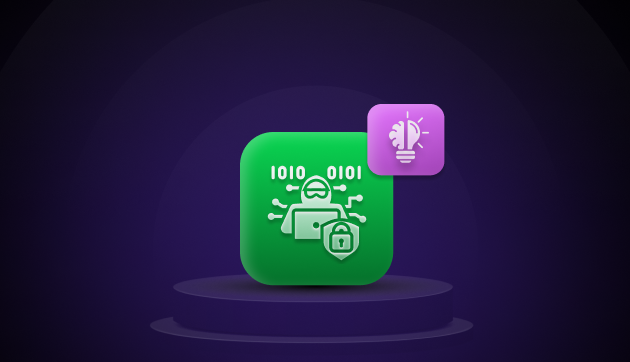
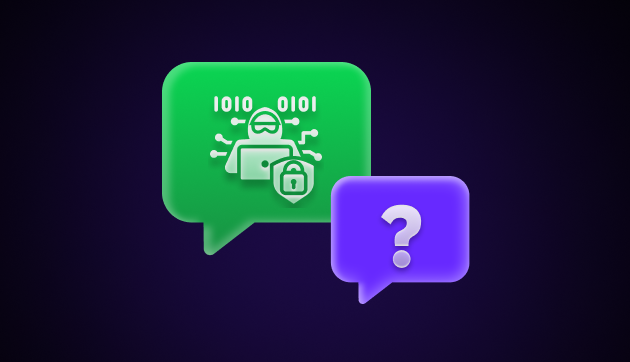


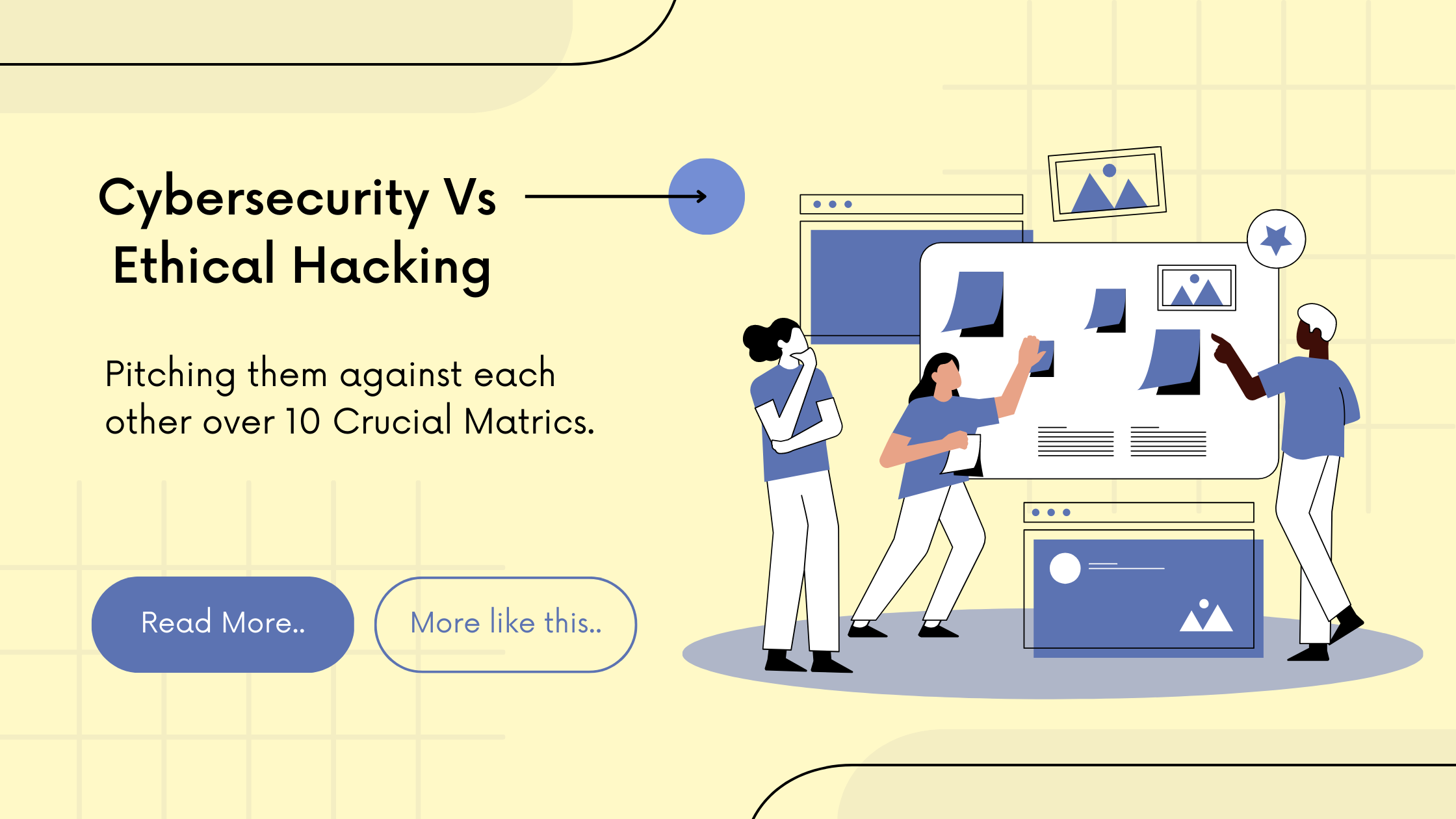
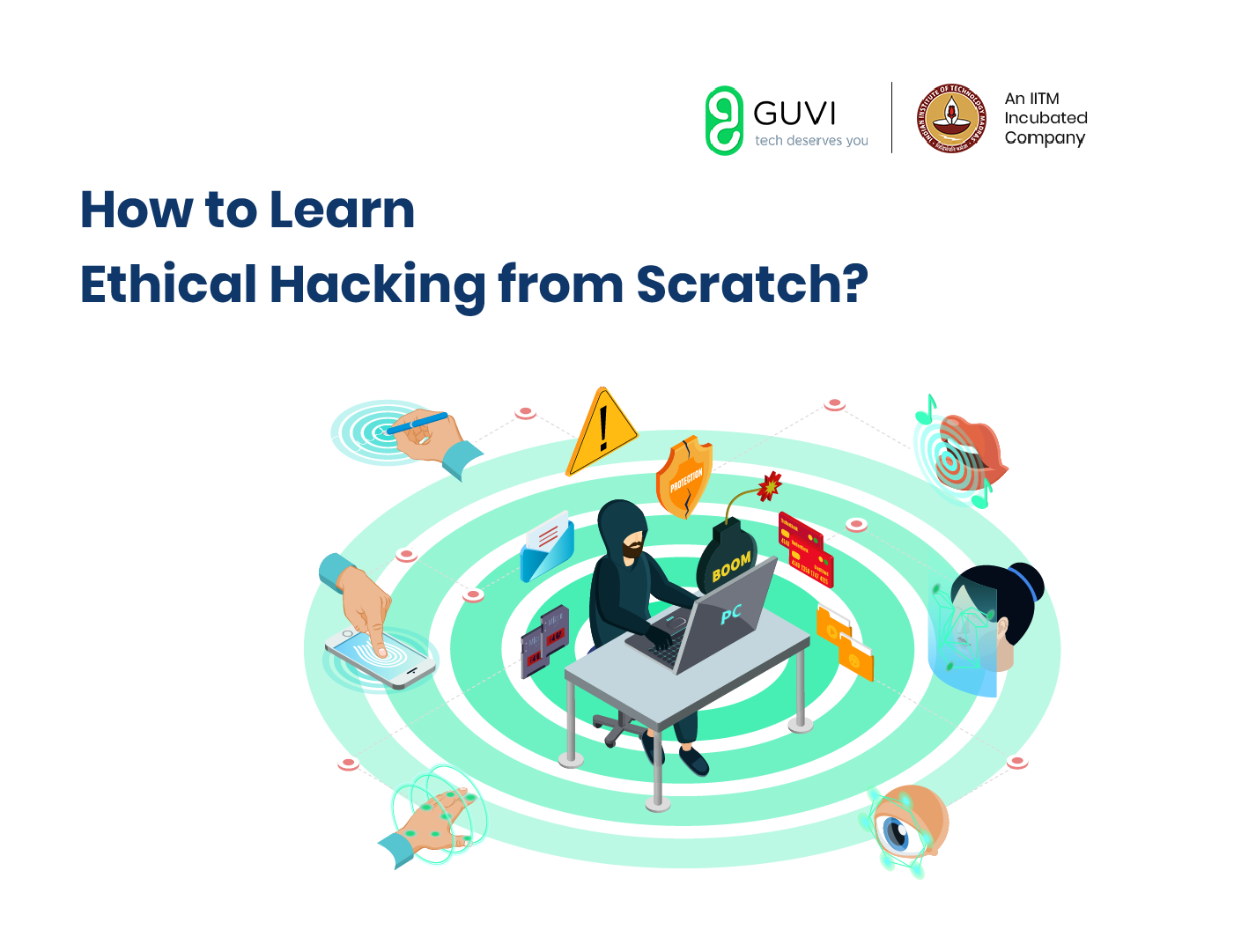
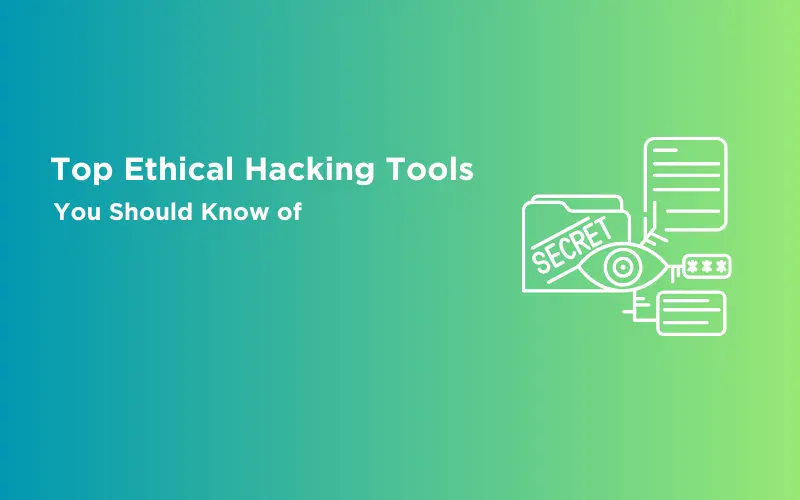
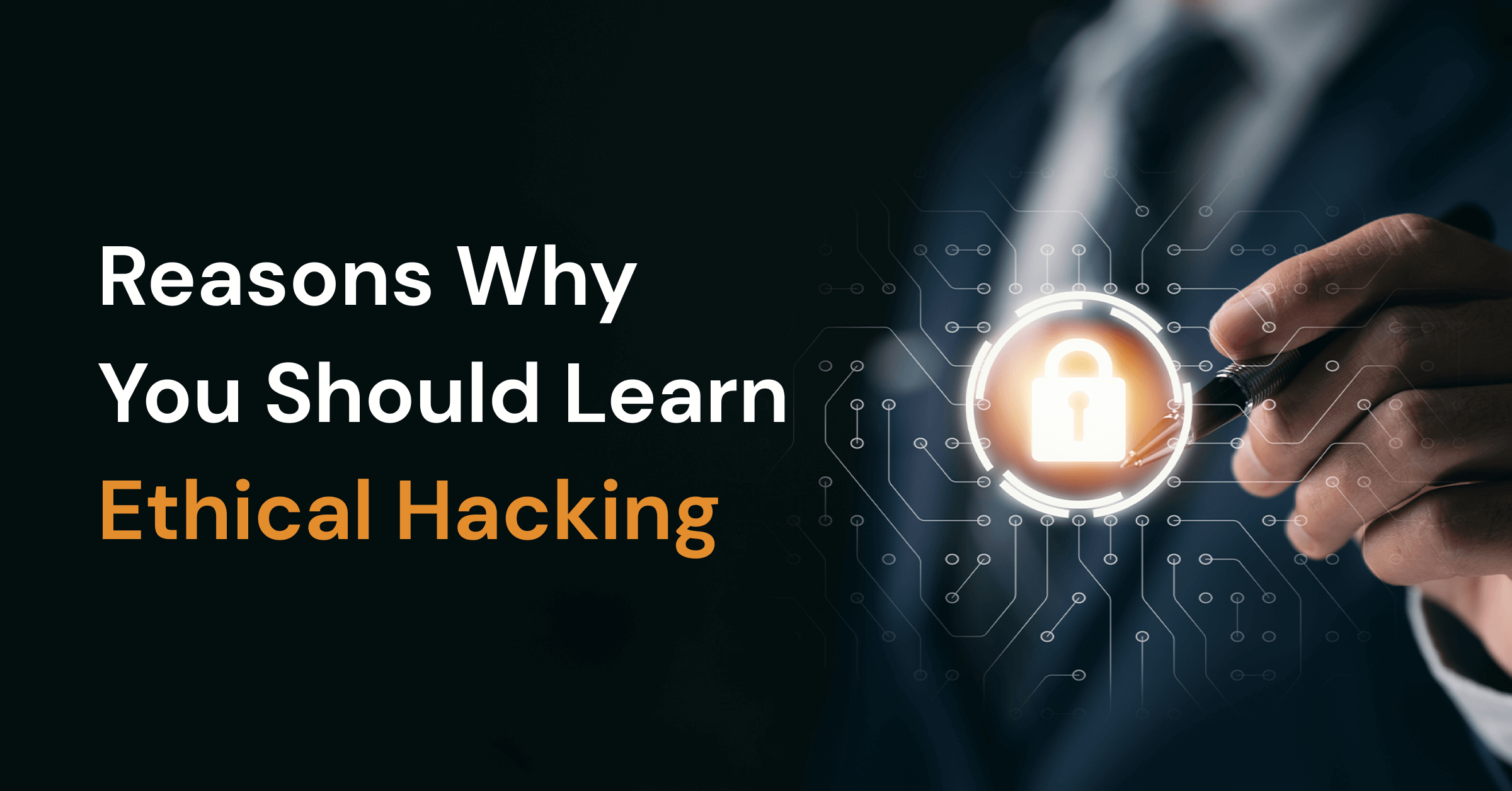

Did you enjoy this article?